People
What I Buy and Why: The Cultivist’s Laura de Gunzburg on Art, Style, and the Most Impractical Work in Her Collection
We spoke to de Gunzburg about what's on her walls.
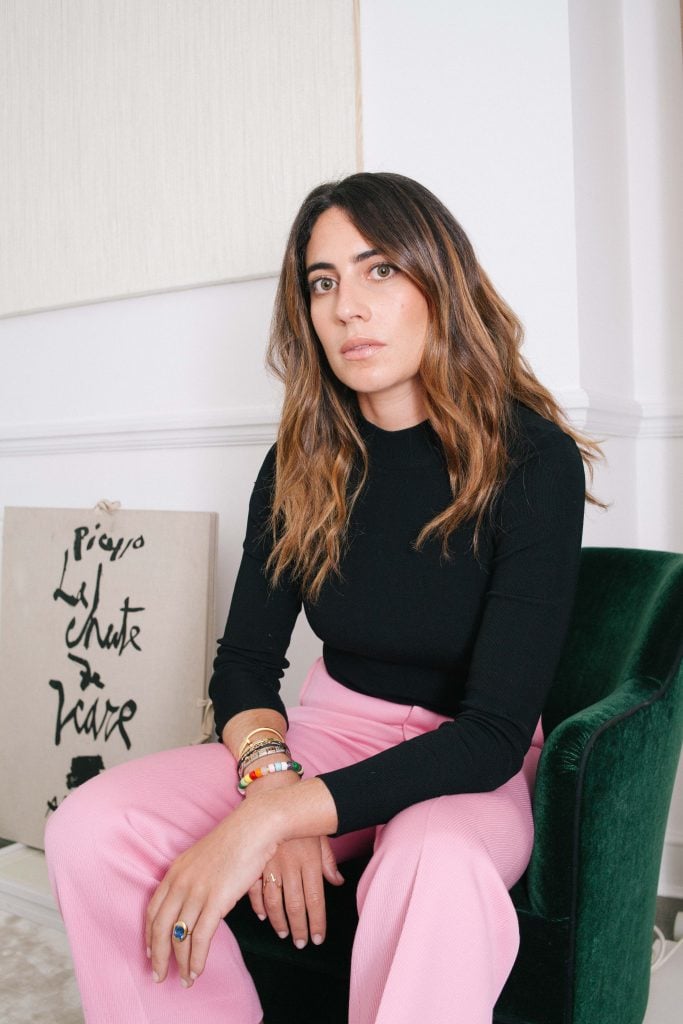
We spoke to de Gunzburg about what's on her walls.

Artnet News

Paris-born New Yorker Laura de Gunzburg grew up among bold artworks as a child.
Her parents were avid collectors who filled their home with powerful pieces that made a lasting impression on their daughter (and her mother was also involved with the Dia Art Foundation).
But it’s perhaps for this very reason that de Gunzburg wanted to disappear into another world entirely. While she loved art, she wanted to lay claim to her own thing, and trained to become a professional equestrian and Olympic rider.
After an injury in college forced de Gunzburg to turn her focus to other passions, she decided to major in art history. Since then, she has found herself at the center of the art world, in which she wears many hats, most prominently as a partner of the exclusive arts club the Cultivist, which gives its members VIP admission to fairs, exhibitions, artist studios, and educational events around the world. She is also a founder and chair of the Dia Art Foundation’s Contemporary Associates, a contributing editor to Cultured magazine, and a rising art collector.
We spoke with de Gunzburg about her favorite pieces in her collection, what she wishes she’d bought when she had the chance, and the one work she’d steal.
What was your first purchase (and how much did you pay for it)?
It’s the second time I’ve been asked this recently, and honestly, I don’t really remember! I recall a piece by Rashid Johnson as one of the earliest I cared about, but I am sure there were some other, smaller works before then.
Which works or artists are you hoping to add to your collection this year?
I love Simone Leigh. I think she is a great artist. I would love to have a piece by her.
What is the most expensive work of art that you own?
I don’t know about most expensive, but the most precious is a piece by Sheila Hicks, as it is the first significant piece my husband and I bought together.
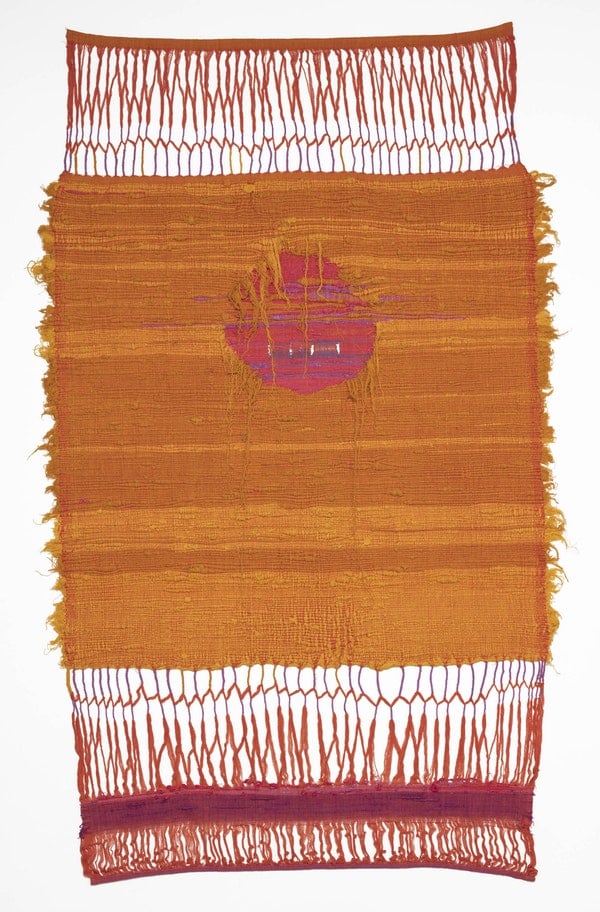
Sheila Hicks, Learning to Weave in Taxco, Mexico (about 1960.) © Sheila Hicks. Photography: © The Art Institute of Chicago.
Where do you buy art most frequently?
I buy direct from galleries, but often during art fairs.
Is there a work you regret not purchasing?
I advised all of my friends to buy a Donna Huanca a few years back, but I never got one for myself, and now it is sadly too late. I don’t know if she will be a major artist, but I find her work very beautiful.
How do you like to display your artwork?
No one way in particular. I like to live with what we have, so we just make it work, somehow. Sometimes, a piece leans on the floor for a few weeks before we find the right spot for it.
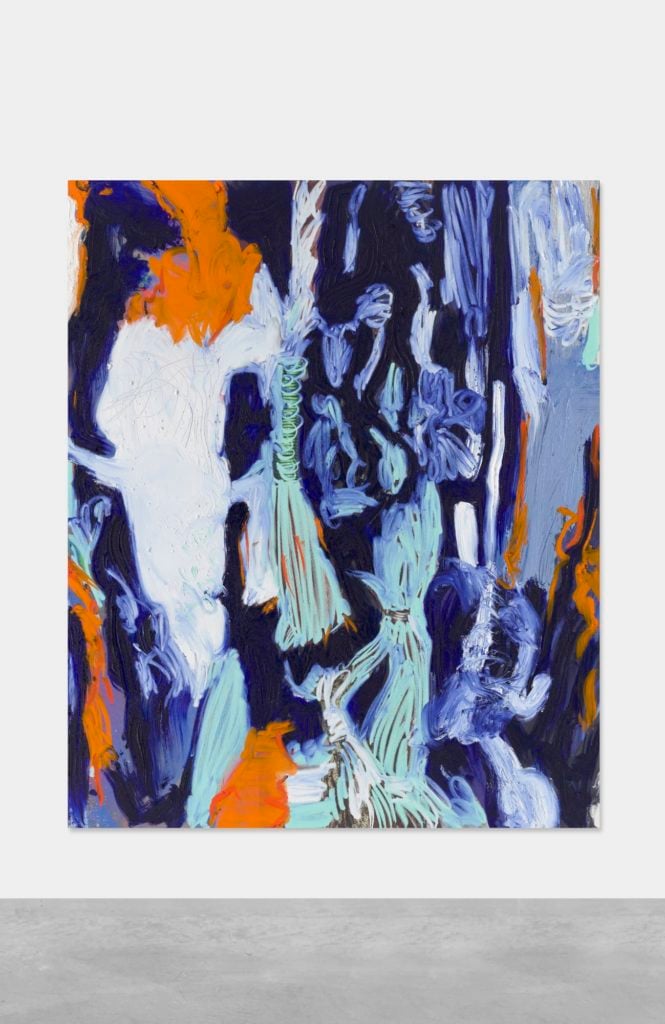
Donna Huanca, Seed Cell Redux (2019–20). Courtesy of Simon Lee Gallery and Peres Projects, Berlin.
What work do you have hanging above your sofa? What about in your bathroom?
Nothing above the sofa, but in front of it, we have a Damien Hirst work on paper, and a little Conrad Shawcross sculpture.
What is the most impractical work of art you own?
I can’t say there really is one, but maybe a [Wolfgang] Tillmans photograph, because it hangs on clips and is therefore very delicate?
What work do you wish you had bought when you had the chance?
A painting by Lynette Yiadom-Boakye.
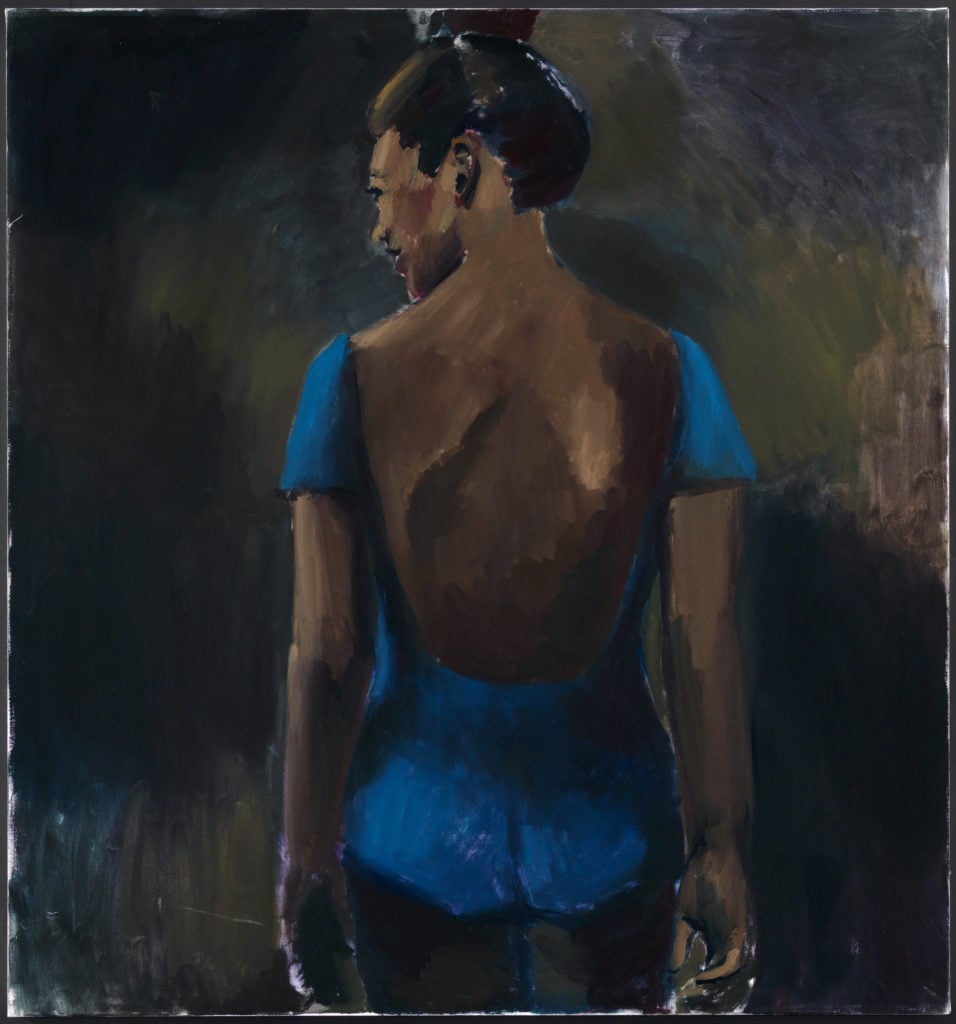
Lynette Yiadom-Boakye Messages from Elsewhere (2013). © Lynette Yiadom-Boakye. Image courtesy of the artist, Jack Shainman Gallery, New York, and Corvi-Mora, London.
If you could steal one work of art without getting caught, what would it be?
A [James] Turrell light piece would be very high up on my list.
What does art mean to you?
Art for me is about supporting artists who make meaningful and beautiful works that we are privileged to get to live with.
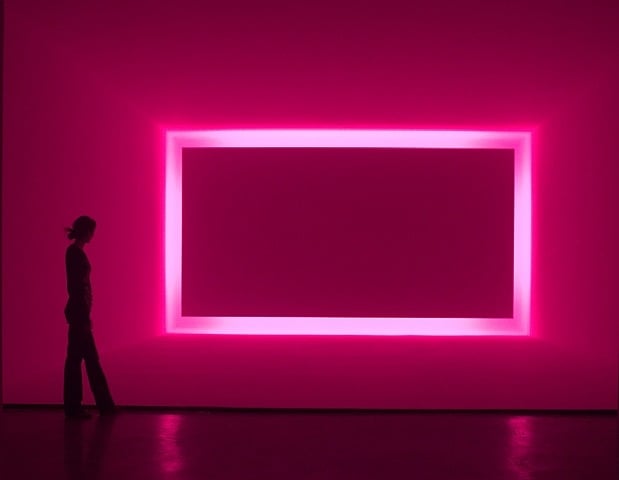
James Turrell, Raemar Pink White, shallow space construction (1969). Kayne Griffin Corcoran, Los Angeles, CA
What does style mean to you? How do you define the relationship between art and style?
I think it is all just a reflection of who you are. How you choose to dress yourself and dress your home is a little bit the same. But what is most important is making those choices for yourself, and not for others!